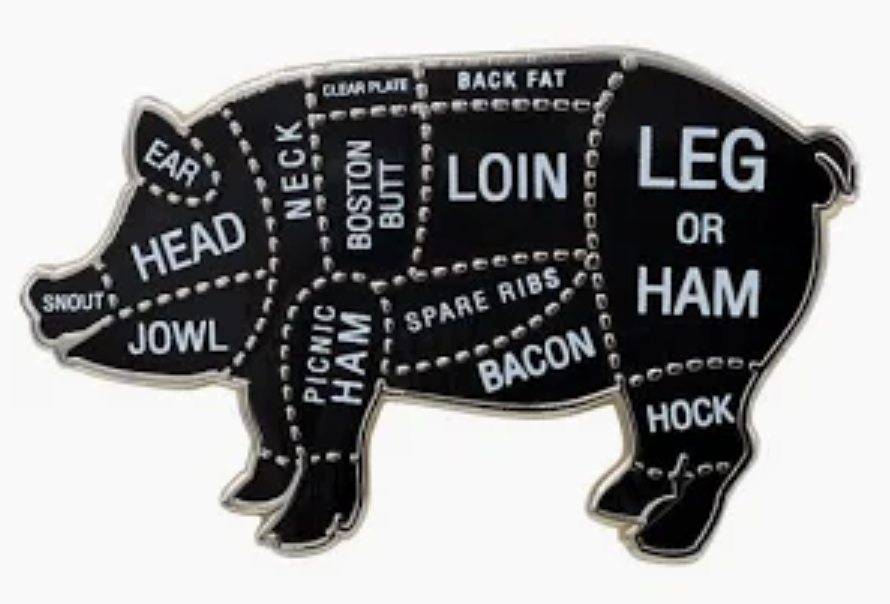I fell for a scam yesterday.
I realized I’d done so minutes after it happened, contacted PayPal right away, and they refunded my money.
The scam was promoted in an ad on Facebook. It’s a site selling reduced-cost USPS forever stamps that are a few years old under the guise of clearing out old inventory. It sure looked like the USPS site I visit now and again, but upon closer examination, it wasn’t. The URL was USPSforeverstamps.com, and while my mind momentarily flitted to “Oh, they have a site just for selling these reduced-priced stamps? Interesting…” I didn’t catch the fraud right away.
After realizing it was a counterfeit product they were selling (and getting my money back), I found the ad again on Facebook and posted a comment about the stamps being counterfeit, whereupon I was met with a bunch of responses along the lines of, “We ordered 100 for our Christmas cards, and they worked great.”
To which I responded, “Yeah, but they’re still counterfeit.”
tempted
I can understand the temptation. The opportunity to get a deal, to save some money …
And I was momentarily tempted to just go with it and get a bunch of they-sure-look-legit stamps. It’s not like I haven’t bent or skirted a law or two or a zillion in my life, but this whole operation of producing high-quality fake stamps is a counterfeit operation and, imo, needed to be reported. (I’d offer that Facebook should be able to tell this is a site selling counterfeit products, but I guess they like ad revenue more than truth-in-advertising.
Well, there is a saying–and with good reason, “If it’s too good to be true, it probably is.”
looks good, but isn’t
I had a counterfeit-product experience a few years ago. I use the DevaCurl “shampoo,” which is really a “no poo” (no soap) product. It’s not the cheapest of hair cleansers, but it works darn well.
I usually bought a bottle or two from the salon where I got my hair cut, but one day I saw some bottles on Amazon for about half the price I paid at the salon. “What a deal!” thought I, and I ordered some.
One of the bottles arrived with a broken cap, which I thought was odd as the bottles are rather sturdy; but, hey, this was the first time I was ordering the product online, and, well, maybe the bottles just didn’t handle the jostling from shipping so well.
After a couple of weeks or so, I knew the product was counterfeit because my hair wasn’t responding the way it did with the DevaCurl products. The product looked right. It even smelled right. But it didn’t perform the same.
OK, so I lost a bit of money. Not the end of the world, but, boy, oh, boy, did that ever put me on alert with online purchases. It bears repeating: if it’s too good to be true, it probably is.
truth in advertising
I placed an order on Temu.com a couple weeks ago. There were a handful of items I’d been wanting to get recently, but I kept thinking maybe I can get a better price elsewhere. Then I thought of Temu and gave it a chance. The particular items I was looking for were all made of ox horn, natural wood or natural stone.
I returned over half of them.
The stone items were stone. The ox-horn item was fake-fake-fake, as were the “wood” items. (Temu returns ain’t nothin’ like Amazon returns for ease and simplicity, so heads up.)
I’ve watched over the years as truth in advertising has become incredibly murky. For example, thousands of products listed as being made of wood or leather or stone — aren’t made of those materials, but are good (or poor) imitations.
“When I was a young girl,” if something was imitation leather, the label said so. If something had a plastic wood-looking veneer, the product description said so. Fake leather wasn’t called leather; fake wood wasn’t called wood. Now? It’s nothing for a product description to say something is made of rubber, when it’s actually plastic, or honey when it’s corn syrup, or whatever other iteration of deception and lies.
A few years ago when I went a-lookin’ for outdoor patio furniture, I was hoping to get teak furniture, as I’d had a teak outdoor furniture set in an earlier chapter in my life and love how it looked, felt and weathered. As I shopped, first online, I found site after site claiming to sell teak wood furniture that was actually acacia wood.
I’d read the product descriptions in detail, searching for a hint of honesty. OK, maybe the online store was bidding for ads on the terms “teak furniture” but the product description would state the truth: it’s acacia.
But, no. Site after site after site listed acacia wood as teak, even extolling the virtues of teak wood when the product they were selling wasn’t teak.
Look, I don’t know how to “fix” this issue. Maybe it’s something that has to work its way through our culture and then will get balanced out in time; or maybe it’s a forever problem. I don’t know. I do know the generation in childhood today (those born 2006 and after; 18 at the top end in 2024) are likely to grow up to be the “credentialed expert” generation. In some ways, I can see influences on their formation now, as they live in a world of fakes, celebrity influencers peddling whatever, Wikipedia entries that vie to establish one side or another’s version of truth, and all manner of mess in the realm of facts. All generations grow up to balance and correct the (perceived or real) excesses and deficiencies of their childhood.
And from my perspective, we’ve got a (rather large) deficiency of truth and accuracy going on now, all of which has become considered normal. Erg.
What about you? Have you fallen for any scams or counterfeits?





1 Comment
Elizabeth T. Brunetti
You’re right — it’s getting so much harder to spot scams! Most recently for me, a DJ duo from a local radio station page I followed years ago invited me to enter some sort of contest for their “longest-standing” listeners, as part of a celebration of the anniversary of their partnership. I almost fell for it, given that I hadn’t interacted with their page in years. But they wanted to collect all sorts of personal information from me, and had even posted comments to the post from what I’m sure were dummy accounts saying, “I just entered my information, it only took a couple minutes!” I backed away slowly!